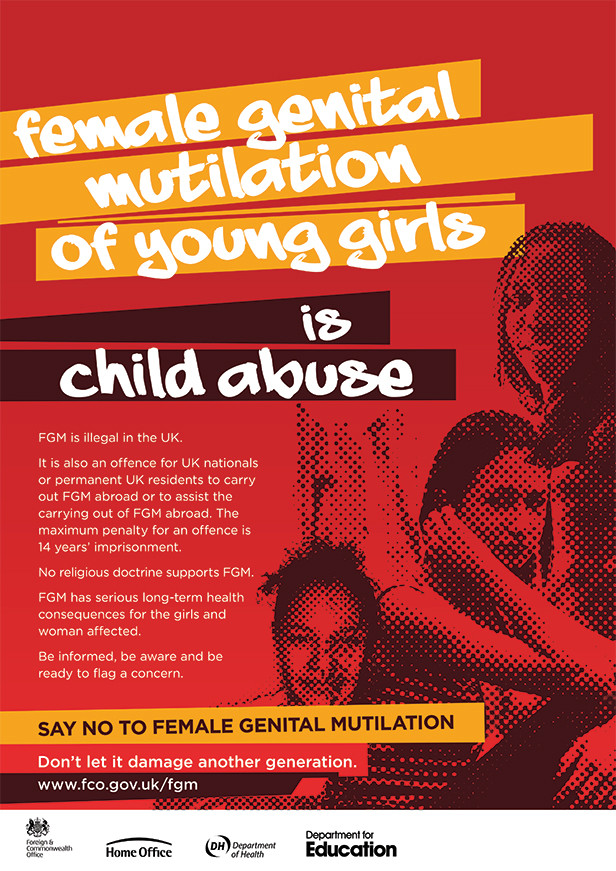
Dorset Police and partners are supporting the annual International Day of Zero Tolerance to Female Genital Mutilation (FGM) on 6 February 2016.
Female Genital Mutilation is illegal in the UK, is child abuse and is an extremely harmful practice with devastating health consequences for girls and women. It is sometimes known as circumcision, ‘sunna’ or ‘cutting’ and is when the external female genitalia is mutilated for non-medical reasons.
Although there have been no reports of FGM to Dorset Police, it is known to be a hidden crime and is believed to be widely under-reported. Despite the harm it causes, many women and men from practicing communities consider it to be normal to protect their cultural identity, ensure virginity and chastity, and safeguard girls from sex outside marriage and from having sexual feelings.
Detective Inspector, Dawn Barrett, of Dorset Police’s Public Protection Unit, said: “People carrying out this type of procedure may have recently arrived in the UK and have no idea that it is illegal. Similarly, if a woman or girl has come from a community where all of the girls have undergone FGM they may think of it as normal and also be unaware that it is illegal. However,this crime is a serious form of abuse and will be treated as such by police.
“There is a penalty of up to 14 years in prison for anyone found guilty of a FGM offence, including if a girl is taken overseas to undergo the procedure, or fails to protect a girl from risk of FGM.
“We know this type of crime is underreported and urge anyone who has experienced FGM, is worried about being subjected to FGM or is concerned about someone else, to seek advice. The police are here to help you, but if you don’t want to speak to the police there are other organisations such as the NSPCC, which can help.”
FGM takes place worldwide in at least 28 African countries and in parts of the Middle and Far East. It also takes place today within parts of Western Europe and other developed countries, primarily among immigrant and refugee communities.
FGM survivor, Salimata Badji-Knight, was circumcised in Senegal, West Africa, when she was aged five. She moved to Paris when she was nine and has spent most of her adult life campaigning to prevent FGM. Today she lives in Dorset and said: “It’s time to stop FGM. It’s time to stop repeating a traditional and cultural practice which is a crime. It’s a crime against girls and humanity at large.”
As well as penalties for those found guilty of FGM crimes, there is now also a mandatory reporting duty which requires health and social care professionals and teachers in England and Wales to report cases of FGM, which they identify in the course of their professional work, to the police. Designated Nurse Consultant for Children from the NHS Dorset Clinical Commissioning Group, Wendy Thorogood, said: “We work closely with both the police and social services around FGM to ensure the same policies and guidance are followed and these are in place across the whole health system in Dorset.
“Last year we were asked by students at Bournemouth University to take part in a documentary they were making on the subject.
“We will continue to work with our partners to help facilitate the right support, guidance and advice needed.”
The lead-up to the school holidays is a time of increased risk for victims, who face the prospect of being taken abroad for the procedure. A girl at immediate risk of FGM may not know what’s going to happen. But she might talk about:
Being taken ‘home’ to visit family
A special occasion to ‘become a woman’
An older female relative visiting the UK
Signs FGM has taken place:
A girl may have difficulty walking, sitting or standing.
She may spend longer than normal in the bathroom/toilet.
A girl may have prolonged or repeated absences from school.
There may be behaviour changes to that individual such as withdrawal or depression.
A girl may ask for help, but may not be explicit about the problem due to embarrassment or fear.








